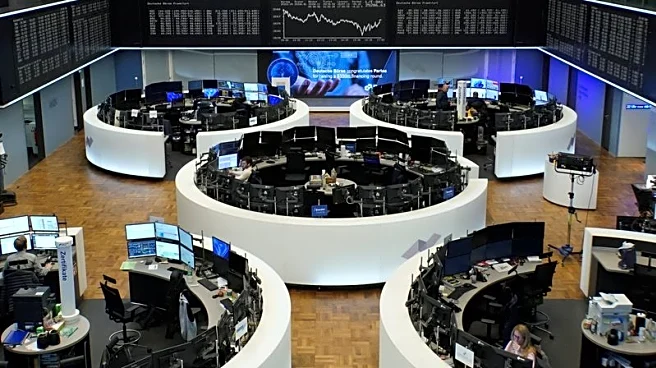What's Happening?
Visa and Mastercard have reached a legal settlement with merchants, allowing them to choose which categories of credit cards to accept, including commercial, premium, and standard cards. Merchants can also impose a surcharge of up to 3% for credit card payments
and the settlement caps fees charged by banks and card companies. This development follows a two-decade dispute over swipe fees, which merchants argue are anti-competitive.
Why It's Important?
The settlement could lead to changes in how consumers use credit cards, with potential surcharges affecting rewards card usage. Merchants may reject high-fee cards, impacting consumer choice and potentially leading banks to adjust rewards programs. This shift could influence consumer spending habits and the credit card market dynamics.
What's Next?
The settlement requires court approval, and its implementation could take months. Merchants may begin to selectively accept cards based on fee structures, and consumers might face surcharges for using rewards cards. Banks may reassess their rewards offerings in response to the new fee limitations.
Beyond the Headlines
The settlement highlights ongoing tensions between merchants and card issuers over fee structures, with consumers caught in the middle. It raises questions about the balance between competitive practices and consumer protection in the financial industry.















